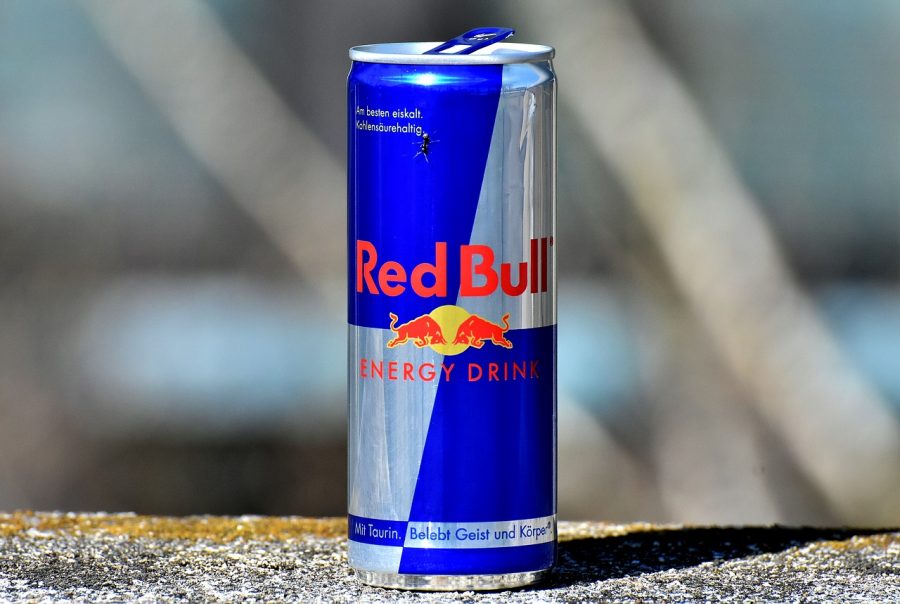Are energy drinks safe for kids and why
Can of RedBull picture from Phelan, Joe. “ Best Practice: How Red Bull Became a Marketing Powerhouse.” Bussiness 2 Community , 9 May 2018, www.business2community.com/marketing/best-practice-how-red-bull-became-a-marketing-powerhouse-02057022.
December 18, 2020
“Keep energy drinks away from young children” stated Los Angeles Children’s hospital. Yes, I do agree that young kids like 9-year-olds and younger should not be allowed to have energy drinks. Two energy drinks are Red Bull and Bang Energy. One better alternative to energy drinks is Gatorade. I know that energy drinks might be good tasting but the list of long-lasting health conditions, when consumed too often, can outweigh the good taste of the drink. Two examples of possible health conditions are; increased heart rate and high blood pressure when consumed regularly. The US Centers for Disease Control and Prevention (CDC) reports that 1,145 adolescents between the ages of 12 and 17 went to the emergency room for accidents that were linked to drinking energy drinks in 2007. In 2011, the number soared to 1,499. Although healthy individuals can tolerate caffeine in moderation, heavy caffeine consumption, just like drinking energy drinks, has been linked to serious health effects like mania, seizures, stroke, and even sudden death. Caffeine also acts as a diuretic, causing the body to get rid of water. Common neurologic effects include tremors and heightened anxiety. In fact, the American Heart Association (AHA) warns against children drinking these beverages. In a randomized study conducted by experts, they found that caffeinated energy drinks markedly prolong the QTc interval, a measurement made on an electrocardiogram used to assess some of the electrical properties of the heart, and also increase the central and brachial blood pressure. A prolonged QTc interval increases the likelihood of ventricular tachycardia, a type of fast heart rate that comes from an altered electrical activity in the heart. Still, it is typically harmless; Adults can safely consume up to 400 mg of caffeine per day — about four to five cups of coffee — according to the Food and Drug Administration. And natural sources of caffeine, such as pure coffee and tea, have been shown to have some health benefits.
Tighe, Judith. “Dangers of Energy Drinks for Kids.” Google Search, Google, 2020, www.google.com/search?q=the+dangers+of+energy+drinks+and+kids.
Joy, Kevin. “Parents, Perk Up to the Dangers of Caffeine for Teens.” Caffeine and Teens: How Much Caffeine Can A Teenager Have?, 31 May 2017, healthblog.uofmhealth.org/childrens-health/parents-perk-up-to-dangers-of-caffeine-for-teens.
Laguipo, Angela Betsaida B. “Are Energy Drinks Safe for Children?” News, 18 June 2019, www.news-medical.net/health/Are-Energy-Drinks-Safe-for-Children.aspx.

renne • Sep 10, 2021 at 12:21 pm
monsters are good though
Zoomer • May 28, 2021 at 8:48 am
I personally like energy drinks like White monster. but the article shows a compelling argument against there consumption.
boomer • Mar 18, 2021 at 8:48 am
i like to drink white monster
White monster for kids • Feb 23, 2023 at 6:13 pm
White monster doesn’t have as much so yes it’s good for children